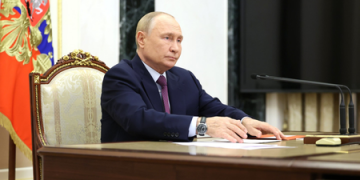London, June 11: British Prime Minister Theresa May was seeking a deal with a small Northern Irish party Sunday to stay in power after losing her party’s parliamentary majority in a catastrophic electoral gamble just days before Brexit talks are set to start.
But with May’s personal authority in tatters, there were reports that moves were afoot within her Conservative Party to dislodge her, while opposition Labour leader Jeremy Corbyn was insisting she could be ousted and he could replace her. May’s Downing Street office had announced Saturday that the “principles of an outline agreement” with Northern Ireland’s Democratic Unionist Party (DUP) had been agreed, only for the DUP itself to cast doubt on that account hours later.
“The talks so far have been positive. Discussions will continue next week to work on the details and to reach agreement on arrangements for the new parliament,” it said.
It was another humiliation for May, and a sign that the socially conservative DUP, with its strong focus on Northern Ireland’s specific political complexities, will not necessarily be a compliant partner for her minority government.
The DUP statement put Downing Street on the back foot, prompting a carefully worded response in the early hours of Sunday. That said May had “spoken with the DUP to discuss finalizing” a deal in the coming week.
“We will welcome any such deal being agreed, as it will provide the stability and certainty the whole country requires as we embark on Brexit and beyond,” the Downing Street statement said.
The timing is challenging, with Britain due to start negotiating the terms of its exit from the European Union with the bloc’s 27 other members June 19. Those talks, expected to be the most complex in post-World War II European history, are supposed to wrap up before the end of March 2019, the date when Britain is officially scheduled to leave the bloc — a timeline that was already considered ambitious before May’s electoral debacle.
Corbyn stakes claim
The Conservatives won 318 House of Commons seats in Thursday’s election, eight short of an outright majority. Labour, the main Opposition party, won 262. The DUP won 10. Labour’s Corbyn told the Sunday Mirror newspaper he saw a route to power himself, although it was not clear how he would command the support of a majority of members of parliament.
Labour’s tally, even when added to those of potential allies such as the Scottish National Party and other smaller parties, was still short of a majority. “I can still be Prime Minister. This is still on. Absolutely,” Corbyn was quoted as saying. Reuters







































